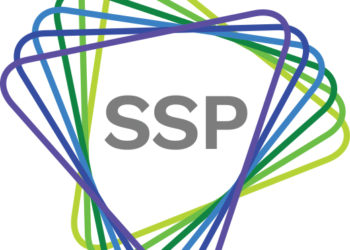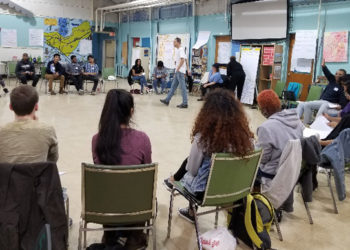Rather than posts from either our regular bloggers or guests, this week The Scholarly Kitchen is stepping off the stage to instead spotlight research and researchers writing about systemic racism from around the globe and from multiple disciplinary perspectives. As the blog of the Society for Scholarly Publishing (SSP), the mission of The Scholarly Kitchen is to highlight information and insights from the dynamic world of scholarly communications: research and scholarship sits at the center. We have linked to open content or reproduced where licenses allow.
Next week we will post reflections and readings about our industry. Please also read last week’s statement from the SSP Board of Directors and Co-Chairs of the Diversity, Equity & Inclusion Committee, “Reaffirming our Commitment to Diversity, Equity, and Inclusion.”

Yesterday we featured the February 2020 issue of The BMJ on racism and medicine. All 28 articles in that issue are open to read.
Today we feature, “Libraries on the frontlines: Neutrality and social justice,” an article authored by Sarah Park Dahlen, Renate Chancellor, Shari Lee, Amelia Gibson, Yasmeen Shorish, and Nicole Cooke and published in Equality, Diversity and Inclusion: An International Journal in 2017.
From the abstract:
- “The purpose of this paper is to examine libraries’ responsibility to engage with and support communities of color as they challenge systemic racism, engage in the political process, and exercise their right to free speech. Many libraries have ignored the Black Lives Matter (BLM) movement, citing the need to maintain neutrality. Despite extensive scholarship questioning the validity of this concept, the framing of library neutrality as nonpartisanship continues. This paper examines librarianship’s engagement with, and disengagement from black communities through the lens of the BLM movement. It also explores the implications of education, engagement, and activism for people of color and libraries today.”
- “The authors have engaged the topic from a critical race perspective as a practice in exercising voice – telling stories, presenting counterstories, and practicing advocacy (Ladson-Billings, 1998).”
- “The assertion that libraries have been socially and politically neutral organizations is ahistorical. When libraries decide not to address issues relevant to people of color, they are not embodying neutrality; they are actively electing not to support the information and service needs of a service population. In order for libraries to live up to their core values, they must engage actively with communities, especially when those communities are in crisis.”
Discussion
1 Thought on "We Step Aside: “Libraries on the Frontlines”"
This is an excellent piece and I truly believe the same can be said about academic publishers, the majority of whom have been taking similarly “neutral” positions. More than statements of support for staff, we need publishers to commit to impactful, thorough and measurable efforts to end the prevalence of racism in academic publishing. This needs to cover everything from making publishing houses more diverse and inclusive places to work to properly addressing the bias against reviewers from BAME backgrounds, the lack of diversity of editorial boards and, as a result of the prior, the potential racial bias in decisions on academic papers — the whole peer-review system at the core of academic publishing is fatally flawed if publishers do not seriously address this.
This publishing community can no longer accept publishers and libraries lack of serious action. Neutrality truly is a stance.


